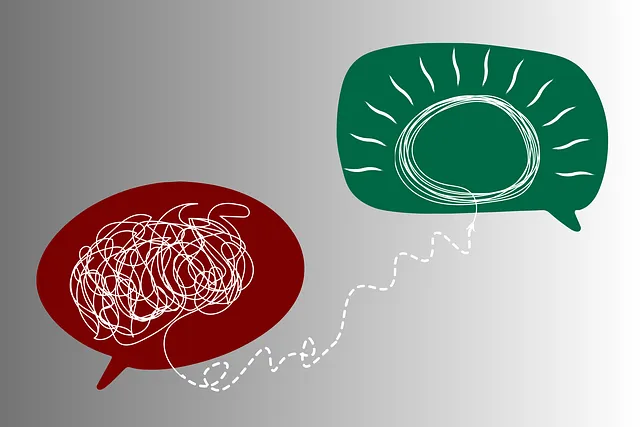Mood regulation, crucial for emotional balance, involves recognizing and managing feelings, thoughts, and behaviors. Self-awareness, identified triggers, and strategies like mindfulness, cognitive reframing, and physical activity are key. Kaiser Westminster offers personalized mental health services, including a podcast series and community outreach programs, to help individuals develop Emotional Intelligence (EQ) and navigate stress adaptively. By incorporating self-care practices and seeking professional support from Kaiser Westminster, individuals can create a holistic plan for long-term emotional well-being, using tools like mood journals to track progress.
Mood regulation is a vital aspect of emotional well-being. In today’s fast-paced world, understanding and managing our moods can significantly impact our overall health. This article guides you through the process of achieving emotional balance by exploring various strategies. We’ll delve into the importance of recognizing mood patterns and discuss how Kaiser Westminster facilitates access to mental health services. Additionally, we’ll offer practical tips for daily mood management and emphasize creating a personalized plan for long-term wellbeing. Learn effective techniques to take control of your mental health and discover how to get the support you need through Kaiser Westminster.
- Understanding Mood Regulation: Unlocking Emotional Balance
- Kaiser Westminster's Role in Accessing Mental Health Support
- Effective Strategies for Day-to-Day Mood Management
- Creating a Personalized Plan for Long-Term Wellbeing
Understanding Mood Regulation: Unlocking Emotional Balance

Understanding Mood Regulation is a pivotal step in achieving emotional balance and enhancing overall mental wellness. It involves recognizing and managing one’s feelings, thoughts, and behaviors to foster a state of calm and resilience amidst life’s challenges. By employing various strategies, individuals can unlock their ability to navigate emotional landscapes effectively. This process begins with self-awareness—identifying triggers, patterns, and cues that influence mood. Once recognized, coping mechanisms such as mindfulness practices, cognitive reframing, and physical activity can be employed to mitigate negative emotions and strengthen positive ones.
Accessing resources like the Mental Wellness Podcast Series Production or joining a Community Outreach Program Implementation can also play a significant role in learning and practicing these strategies. Emotional Intelligence (EQ) is another crucial component; understanding and managing one’s own emotions, as well as recognizing and empathizing with others’, empowers individuals to respond adaptively to stressful situations. Through such initiatives, Kaiser Westminster offers valuable support for those seeking to enhance their mental health services, ultimately promoting a more balanced and fulfilling life.
Kaiser Westminster's Role in Accessing Mental Health Support

Kaiser Westminster plays a pivotal role in facilitating access to mental health support, offering a range of services tailored to individual needs. With a comprehensive network of healthcare professionals, they provide various therapy options, from traditional talk therapy to specialized treatments, ensuring patients receive personalized care. The organization’s commitment to mental wellness is evident through their innovative approaches, including the development of public awareness campaigns and production of mental wellness podcast series, which foster self-awareness exercises and educate communities on recognizing and managing mental health challenges.
By integrating these strategies, Kaiser Westminster not only supports individuals in navigating their mental health journeys but also contributes to a broader culture of open dialogue and understanding. This holistic approach empowers people to seek help without barriers, promoting overall well-being within the community they serve.
Effective Strategies for Day-to-Day Mood Management

Managing one’s mood on a daily basis is a skill that can significantly impact overall well-being. Incorporating certain strategies into your routine can help regulate emotions and maintain mental balance, especially in the face of life’s challenges. One effective approach is to prioritize self-care activities tailored to individual needs. This might include engaging in regular physical exercise, practicing mindfulness or meditation, and ensuring sufficient quality sleep. These habits not only promote emotional stability but also enhance overall resilience.
Additionally, seeking support from mental health professionals can be invaluable. Kaiser Westminster, for instance, offers services that cater to diverse cultural backgrounds, emphasizing the importance of Cultural Sensitivity in Mental Healthcare Practice. The key is to find activities and resources that boost confidence and prevent burnout, ensuring individuals have the tools to navigate their emotional landscape effectively.
Creating a Personalized Plan for Long-Term Wellbeing

Creating a personalized plan for long-term emotional well-being is a proactive step towards managing one’s mental health. It involves understanding your unique triggers and coping mechanisms, which can be achieved by keeping a mood journal to track patterns. Identify specific strategies that work best for you; this might include mindfulness practices, regular exercise, or creative outlets.
For those seeking additional support, Kaiser Westminster offers excellent resources, including therapy services and mental health programs tailored to individual needs. The key is consistency in implementing these techniques daily. By combining personalized strategies with professional guidance from healthcare providers like Kaiser, one can effectively promote emotional well-being and regulate their mood over the long term.
Mood regulation is a journey unique to each individual. By understanding emotional triggers and employing effective strategies, such as those provided by Kaiser Westminster in accessing mental health support, one can achieve better day-to-day mood management. Creating a personalized plan for long-term wellbeing involves identifying coping mechanisms that work best for you, whether through therapy, self-care practices, or community resources like Kaiser Westminster’s mental health services. Remember, achieving emotional balance is an ongoing process, and with the right tools and support, it’s achievable for everyone.






